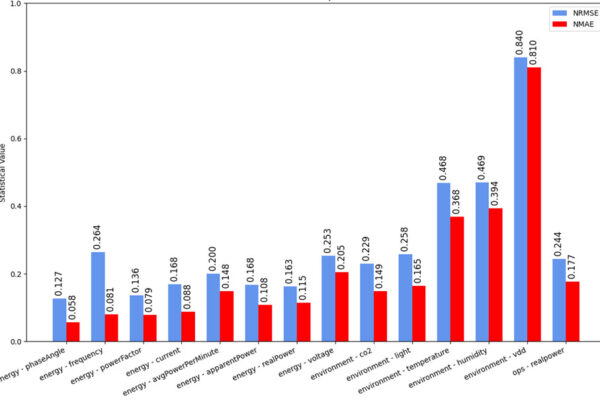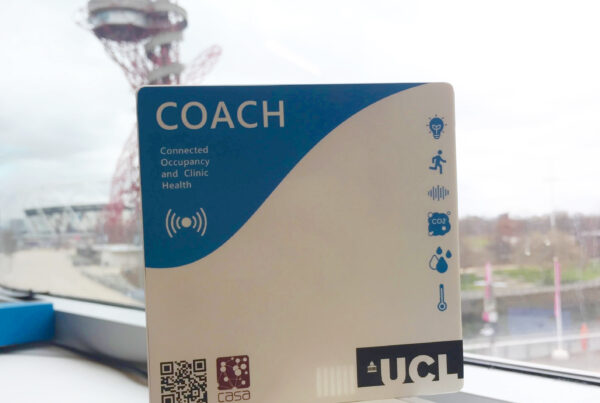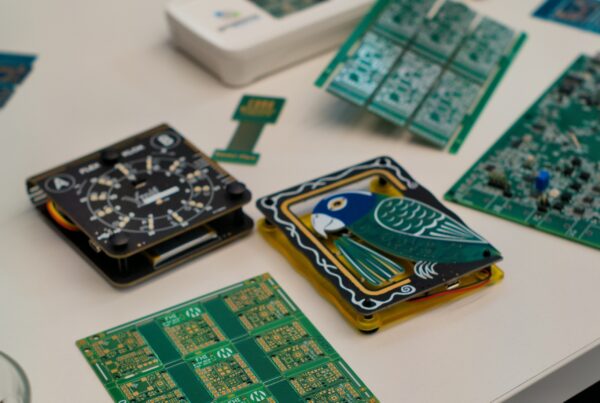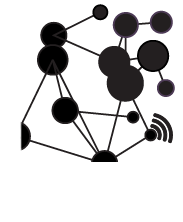Frequently Asked Questions
We have been getting a number of queries about the MSc so thought we would capture the common ones below. If you have a question about the course that is not covered below then please do get in touch.
Q. The course appears to be multi-disciplinary and future-proofing. Upskilling students in skills and subjects which will permeate society in the coming decades: coding/programming (technical), product management (design, tinker, build, deploy, manage), networking (with people) etc. Would you agree with this?
A: This is the aim and we have invested a fair amount of time to make sure we deliver this.
Q: I love the practical focus of this course – would students have a portfolio of working products by the end?
A: That is the plan. Every student will get their own IoT Toolkit at the outset of the programme and the intent is that students will build and document their work to develop a portfolio of projects.
Q: I have been on various Python courses recently and been exposed to web coding at work. What level of coding/programming is ideal to start with (pre-course?) or can it be acquired during the course?
A: We want to cater to a low barrier to entry to encourage diverse participation and as such we will be providing support for those with less coding experience. In addition, we are designing in stretch goals for those who may be more comfortable with coding and want to work on more complex project work.
Q: IoT, Smart Home, Sensors, GIS are being used with many applications: geographical, land management, epidemiology, population, migration, environmental, energy grids, urban management, home security. Do you see any possibility of applying the course learnings / projects towards non-urban environments?
A: Whilst our predominant environment will be our London Living Lab (around our campus and the Queen Elizabeth Olympic Park) our work aligns with the “Future Living Institute” activity within UCL East. As such there will be plenty of scope to apply learning to a broad range of projects, particularly in your final project / dissertation work.
Q: Do you see the possibility of applying course learnings / projects to environmental / sustainability / health challenges?
A: The Bartlett have put climate change at the forefront of all our activities – see: https://www.ucl.ac.uk/bartlett/about-us/our-values/build-better-future – so we are constantly trying to understand how our work, research and teaching, fit within that context. It is down to us to work on these challenges.
Q: I’ve worked in telecoms and tech. IoT and sensors are very popular. Where else in the business world (particular industries, companies, organisations) do you see need for the skill-set the MSc gives?
A: Over the past couple of decades the internet has transformed the way we conduct business. Frictionless access to our digital realm has changed our business processes, our ability to access information and access to markets. The connectivity of our physical world afforded by what is termed the Internet of Things is the next iteration of this move towards digitisation, as such we anticipate it will impact all sectors.
Q: I see part-time study is an option – if part-time, during a typical week, what hours/days would one study on (in-person lectures, workshops) and how much self-study would be required per week? I’m trying to gauge if working part-time and studying this is feasible or whether to go full-time.
A: Our approach to “listen – make – review” means that for most modules students will go through cycles of learning about a topic, spending time getting hands on and making something, and then sharing what they have made with the rest of the group to get feedback and learn from others experiences. This cycle means that we aim to work in half day blocks (vs a more traditional 2 hour lecture block). For part time students this may mean trying to block out 1-2 whole or half days per week.
Q: Is the major campus for students in the UCL East Campus?
A: Yes, the program will be run entirely from UCL East with potentially some shared seminars / guest lectures over on the Bloomsbury Campus. You will of course still be able to access all the UCL facilities (student centre, institute of making etc) in Bloomsbury Campus.
Q: What extent of data visualization, programming languages, and deep learning algorithms will the students be exposed to? (What kinds of programming languages or tools).
A: Data Vis / VR / AR will typically be taught using Unity plus a number of tools such as Aframe, Vu City etc for 3D Modelling and web tools such as Grafana, Processing for data vis. The core programming environment for a variety of the IoT work will be Python and Arduino, and the ML work will most likely be done using Tensorflow.
Q: Do you have any doctoral opportunities for the Connected Environment?
A: Definitely! One of our goals is to help students graduate into undertaking doctoral research. We obviously cannot guarantee funding but the MSc program provides a great platform to apply for PhD positions.
Q: What kind of Entrepreneurship modules the students can be exposed to? Do you have any startup resources/organizations/activities for students?
A: The program was originally conceived with industry so we anticipate significant input from industry partners in the program. One of the modules (prototype and pitch) is being developed with input from UCL Business School and our Innovation and Enterprise unit at UCL. More broadly UCL has a number of vehicles to support students who are keen to engage in entrepreneurial activity (e.g. UCLB and the Conception X programme)
Q: I wanted to inquire what kind of profile you are looking for in your student cohorts? How much focus is put on coding experience or a background in informatics? Could you provide some insights/guidance?
A: The course is aimed at people who are wanting to learn a variety of technical skills that will help them understand the world of IoT and Digital Twins. Whilst programming knowledge is not required it is assumed that participants are keen to learn and are not afraid of jumping into a programming environment and working out how to get some code working. For those who declare no coding experience we will suggest some online resources to get people started prior to joining the course. For us it is more important to have a variety of backgrounds and students with a desire to get stuck in – you will be programming on the course!
Q: Is there is a difference between MSc and MPhil at UCL?
A: The MSc programmes are designed to be 2 thirds taught and 1 third dissertation project. One of the key outcomes of this for students who are wanting to continue in an academic research environment is that it helps them develop and formulate their PhD research proposal. Often the outcome of an MSc programme is that students apply to undertake a PhD. The PhD programme requires students to develop a brief research proposal which they then submit to UCL. If this proposal is accepted and supervisors are identified then the student is registered on the PhD programme. About mid-way the student goes through an “upgrade” process where they present their background research and present their plans and hypothesis for delivering some novel research. If the student decides to leave UCL at this stage then they can be awarded an MPhil, otherwise they continue on their PhD journey.
Q: What do you students do after graduating?
A: It varies, some continue in academia (e.g. moving on to a PhD – see above!) and others have gone to work with companies large and small. For example, some of our recent graduates have contacted us to say:
“Having worked as an embedded engineer before, this master’s course improved my understanding of future embedded systems, teaching me skills like prototyping and visualization. I have now started my employment as a software engineer within complex embedded systems in “YouView Ltd” and I am confident that my master’s course will give me a competitive edge in product design and development.”
“After one year of learning at CE, I start working as an IoT and digital twin consultant in a tech company. This course definitely helped me have an understanding of state-of-the-art IoT technology. I will keep pursuing my career in the digital twin industry.”
“Now I have applied for a job as a solution engineer, responsible for the work in the field of smart home. This course allowed me to enter the industry of intelligent and connected devices. I will continue to work in this field or pursue further study in the future.”




